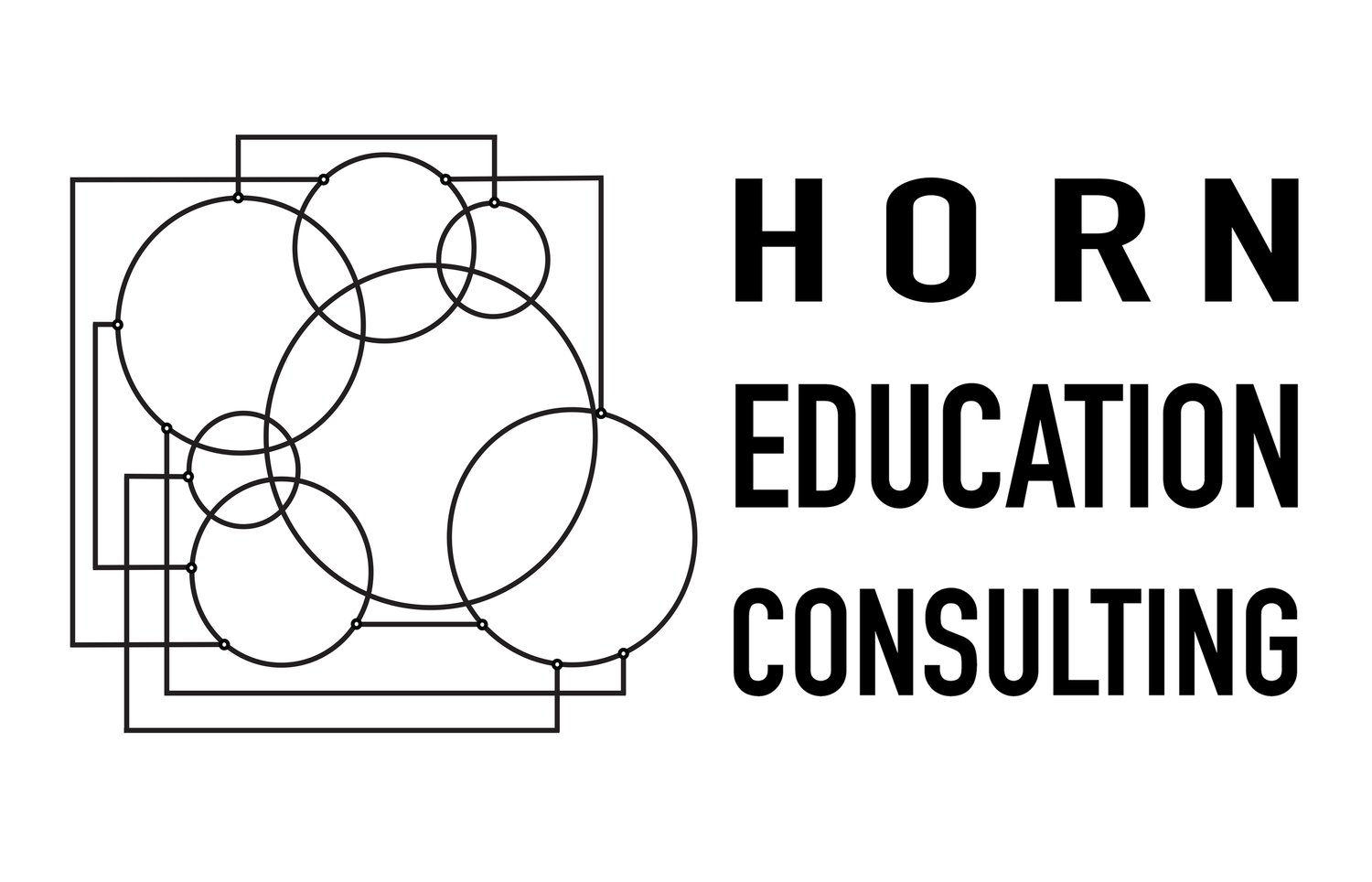Episode 004 Detailed Outline
with Amy McNeill, Sarah Murphy, Stacy Rodgers, and Robyn Horn (8/31/17)
00:01 STEPHEN THORNE’s bumper
00:34 PETER HORN intro
04:35 AMY McNEILL on the importance of writing and communication for all kinds of jobs
05:12 Act 1: Essays
- The French verb essayer and Michel de Montaigne
- STACY RODGERS on essays as weird (06:11)
- DANIEL TURKELTAUB on the dreaded 5-paragraph essay (07:06)
- AMY “The problem isn't the model itself, it's just that we often don't teach students that there are other ways to write ...” (07:43)
- AL MORALES on the writer’s gift of surprise (08:27)
- NONI THOMAS LOPEZ on letting students experiment with different ways to lay out an argument (09:11)
- ROBYN LEE HORN on the 5-paragraph essay as “part of the vocabulary, instead of the only vocabulary” (09:47)
- The strangeness of always responding to fiction reading with non-fiction writing (10:18)
- SARAH MURPHY on learning to write by reading (11:06)
- AMY on providing models for students and writing as thinking (11:44)
- ALEXIS ANDERSON-URRIOLA: “If you would never say a word aloud, you should never write it!" (12:43)
13:15 Act 2: Audience
- SUSAN LYTLE on the need for more authentic audiences (13:32)
- STACY on writing as not just something English teachers care about (13:59)
- SARAH on science writing (14:39)
- AMY on writing for different kinds of audiences (16:10)
- NANCY LATIMER on writing for new media (16:41)
- AMY on the school tradition of writing for the teacher only (17:10)
- WARREN HYNES on the greater satisfaction of writing for wider audiences (17:38)
18:37 Act 3: Author
- SARAH on the problem with blue book assessments (19:26)
- ROBYN quoting Professor Teresa Choate: "I don't remember. I have a very bad hard drive, but an excellent search engine!" (20:47)
- SARAH on being able to evaluate information (21:40)
- AMY on protecting students’ unique voice (22:15)
23:41 Act 4: Purpose
- Do we write to demonstrate learning? to discover? to reflect? to create a better society?
- ROBYN on leaving “rough edges” (24:17)
- Can we throw grades out? (25:20)
- ELEANOR LEAR on writing for a grade vs. authentic audience (25:37)
- AMY: “In a way, writing is never done; it's just due.” Did you learn something? Did you make progress from where you used to be? (26:09)
- STACY: “I'd rather an interesting piece of sloppy syntax, then a perfectly formed set of paragraphs that don't go anywhere …” (27:42)
- HEATHER ROCCO with a thought about formulas for “good” writing, 5-paragraph essays, 3-point thesis statements, summary conclusions, 1st and 2nd person, and fragments (28:03)
- STACY on loving when students notice aspects of work that she hasn’t (29:51)
- SARAH on how kids acquire online writing skills (31:52)
32:31 Act 5: Process
- AMY on modeling her own writing process for students; presenting multiple tools for drafting work to avoid a one-size-fits-all approach (32:41)
- STACY honestly enjoying writing only about 20% of the time (34:45)
- AMY: "Aaaargh! Writing is so hard!"--and being open with kids about that (35:40)
- The importance of participating alongside students in writing and other classroom activities (36:26)
- STACY on teaching texts that still get her fired up (38:33)
- ROBYN and AMY on using tableaux vivants with students (39:24)
- Mel Levine’s idea of writing as the largest orchestra we ask kids to conduct—the many parts of writing (39:40)
- The different levels of aural vs. oral comprehension and expression, and reading and writing for kids with developmental differences and English Language Learners (41:20)
- JENNI BRAND: “When writing feels like breathing, I believe we’ll all be in a better place.” (42:14)
- AMY on the power of doodling and other analog engagement (43:04)

